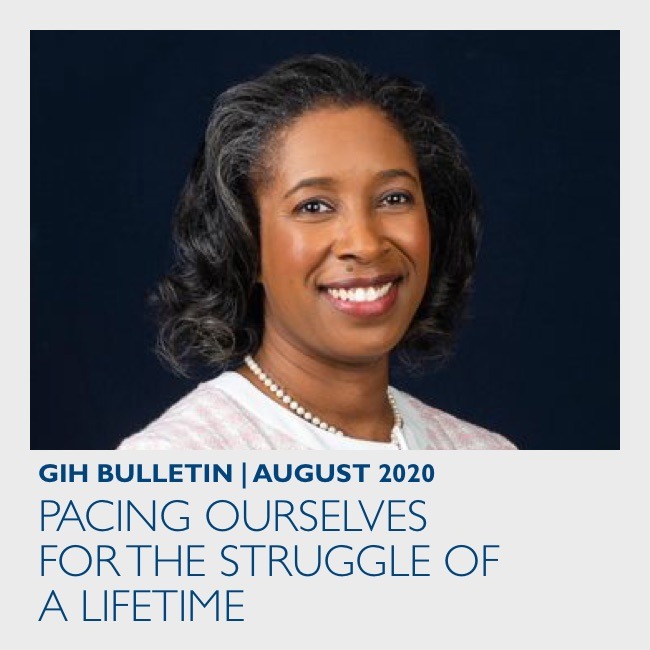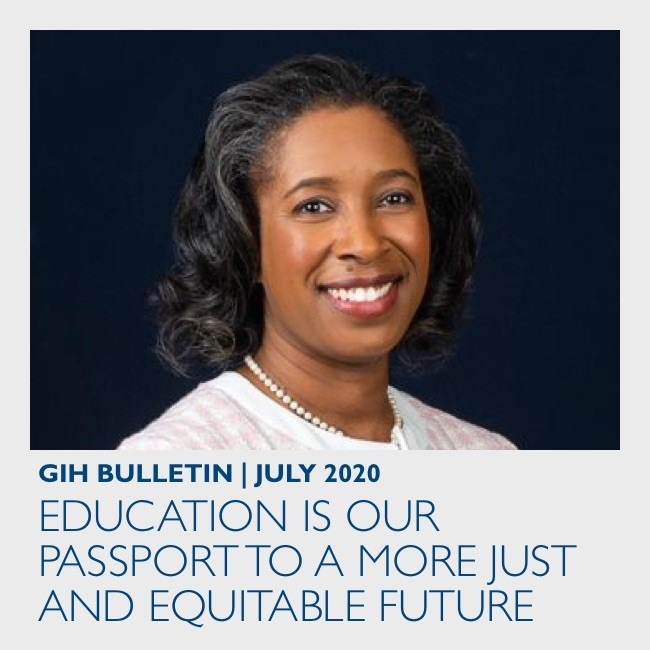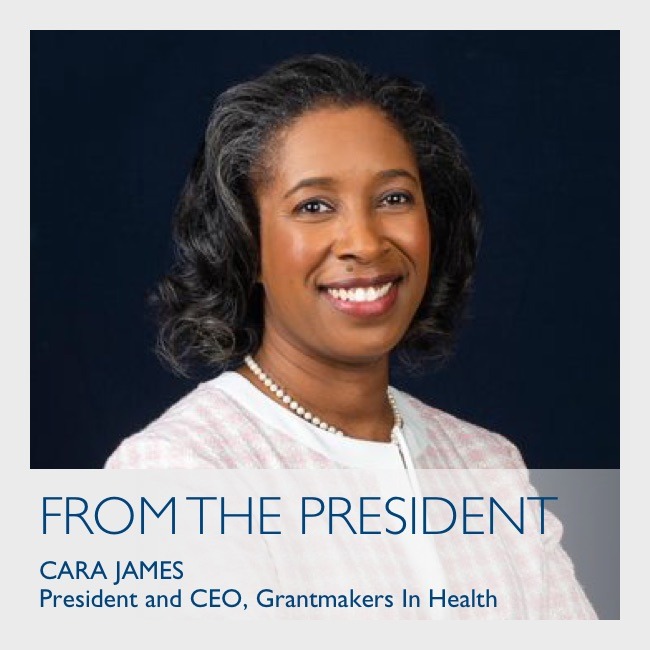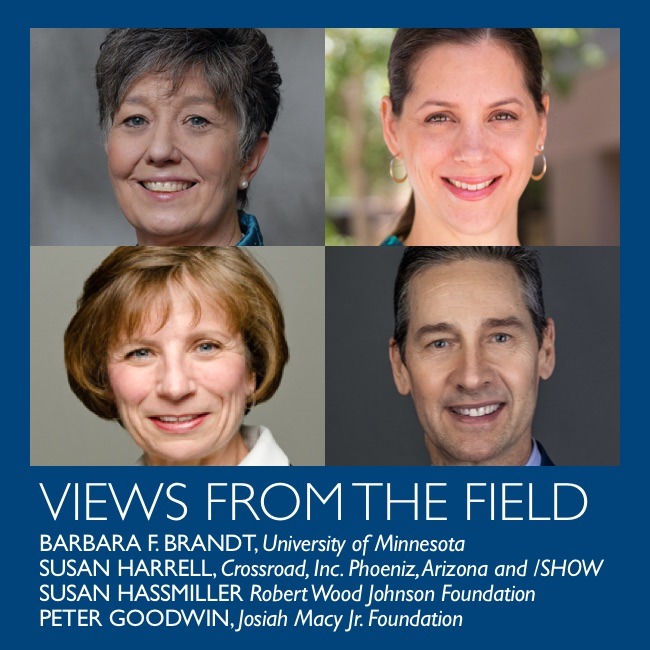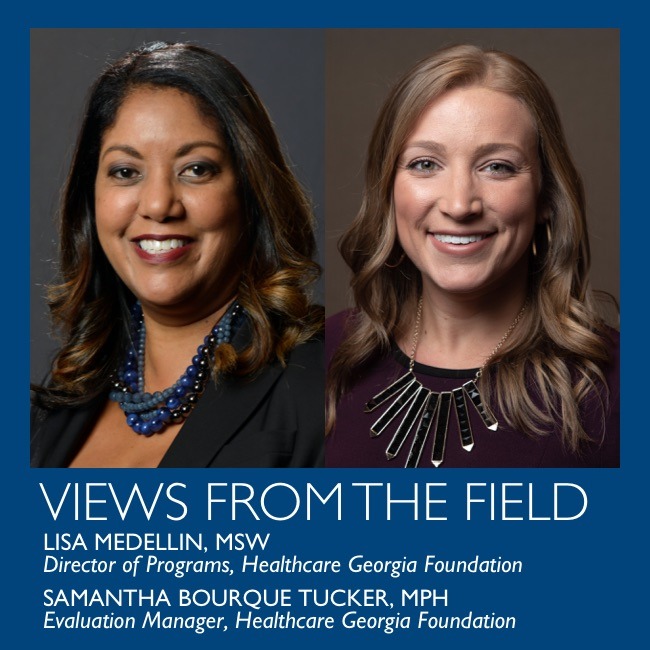Overview of Oral Health in America: Removing the Stain of Disparity
This on-demand webinar features a discussion of the book details the landscape of oral health disparities and highly vulnerable populations.
GIH Bulletin: August 2020
As we head into Fall, let us take a moment to rest, recharge, and to care for one another so that we are prepared to meet the challenges ahead. Let us also remain hopeful, knowing that together we can accomplish anything.
Health Equity: A Candid Conversation with Your Peers
This call was for staff responsible for equity work to connect with peers, identify common challenges, exchange potential solutions, and build collective knowledge.
Leadership Discussion on Health Equity
On this call, philanthropic leaders discussed how institutions are broadening, deepening, or recasting efforts to achieve health equity to meet this moment; identified opportunities to align resources and coordinate planning within philanthropy and with allied sectors; and fostered connections between funders engaged in health equity and social justice work to help increase learning and collaboration, and to achieve the greatest impact.
Updated National Equity Atlas
Using an entirely new content delivery system, the atlas has an enhanced focus on the gaps between growth and equity and is a comprehensive resource for data to track, measure, and make the case for racial equity and inclusive prosperity in America’s regions, and states, and nationwide.
Virtual Coffee Hour: Addressing Racial and Ethnic Disparities in Serious-Illness Care
Kimberly Johnson, Director of the Duke Center for REACH Equity and Associate Professor of Medicine at Duke University, and Cara James, President and CEO of Grantmakers In Health, discussed the critical challenges communities of color face in accessing serious-illness and palliative care.
GIH Bulletin: July 2020
The pandemic and ensuing social unrest have led to myriad conversations focused on how to use this moment to create a more equitable health system, rebuild our public health infrastructure, and reimagine police practices. I would encourage us to also consider this moment an opportunity to rethink our educational system, given the strong relationship between education, income, wealth, and health.
Education Is Our Passport to A More Just and Equitable Future
The pandemic and ensuing social unrest have led to myriad conversations focused on how to use this moment to create a more equitable health system, rebuild our public health infrastructure, and reimagine police practices. I would encourage us to also consider this moment an opportunity to rethink our educational system, given the strong relationship between education, income, wealth, and health.
Educating Health Care Teams by the Zip Code
In 2016, the Robert Wood Johnson Foundation, Josiah Macy Jr. Foundation, Gordon and Betty Moore Foundation, and John A. Hartford Foundation envisioned a national program to support advanced practice nurse faculty members to create sustained and vibrant academic-community partnerships with the goal of improving population health in their own communities and zip codes.
Investing in Rural Communities to Achieve Health Equity
Some years ago, in reference to Georgia’s economy, the claim was made of the existence of two Georgias: one, the vibrant metropolitan areas of the state; the other, rural Georgia – described as its poor economic cousin. Today, this Two Georgias distinction applies to the growing disparities in health and health care between the metropolitan areas and rural communities, home to nearly 2 million Georgians.
Newsletter Sign Up
Want to sign up for the GIH Bulletin? Click here to get on the list.
Contribute to the GIH Bulletin and Blog
If you are interested in contributing your story or expertise to the GIH community please review our Editorial Submission Guidelines.

